
Blancmange are an English synth-pop band formed in Harrow, London, in 1979. The band were a duo for much of their career, composed of Neil Arthur (vocals) and Stephen Luscombe (keyboards). They came to prominence in the early 1980s, releasing four UK top-20 singles: "Living on the Ceiling", "Waves", "Blind Vision" and "Don't Tell Me". They released three studio albums during that decade: Happy Families (1982), Mange Tout (1984) and Believe You Me (1985).

"Bizarre Love Triangle" is the thirteenth single by English rock band New Order, released as a single in November 1986 from their fourth studio album, Brotherhood (1986), which reached the top five on the US Hot Dance Music/Club Play Singles chart, and No. 5 on the Australian ARIA Charts in March 1987. It failed to enter the top 40 of both the UK Singles Chart and the US Billboard Hot 100; however, a new mix included on The Best of New Order was released in 1994 and charted at No. 98 on the Hot 100. In 2004, the song was ranked No. 204 on Rolling Stone's "The 500 Greatest Songs of All Time."
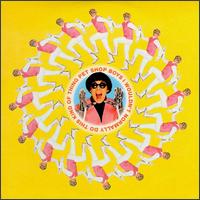
"I Wouldn't Normally Do This Kind of Thing" is a song by English synth-pop duo Pet Shop Boys from their fifth studio album, Very (1993). The song, both written and produced by the duo, describes a person normally hesitant to unwind and show his feelings, who—because of some event in his life—suddenly becomes willing to loosen up. It was released in the United Kingdom on 29 November 1993 by Parlophone as the album's third single, reaching number 13 on the UK Singles Chart. In the United States, where it was released in January 1994, it reached number two on the Billboard Hot Dance Club Play chart. The song's accompanying music video was directed by Howard Greenhalgh.

"Hug My Soul" is a song by British band Saint Etienne. It was the third single from their third album, Tiger Bay (1994), and was released in September 1994 by Heavenly Records. It was written by vocalist Sarah Cracknell along with songwriting partners Guy Batson and Johnny Male.

The Raw & the Remix is a remix album by English alternative band Fine Young Cannibals, released in 1990 by I.R.S. Records, MCA Records and London Records. It contains remixes and alternate versions of songs by the band, mostly from their 1989 album The Raw & the Cooked. Several of the remixes were created by David Steele and Andy Cox of the band, whilst others were created by disc jockeys such as Smith & Mighty, Youth, Jazzie B, Nellee Hooper and Derrick May. The remixes on the album are said to be significantly different from the originals, some of which contain major stylistic differences in the arrangements.

"Living on the Ceiling" is a song by English synth-pop band Blancmange. It was released as the band's third single in 1982, taken from their debut studio album Happy Families. It became the band's first UK Top 40 hit, peaking at No. 7 on the UK Singles Chart and being certified Silver by the BPI for sales in excess of 200,000 copies. The single also reached No. 5 on the Australian Singles Chart.
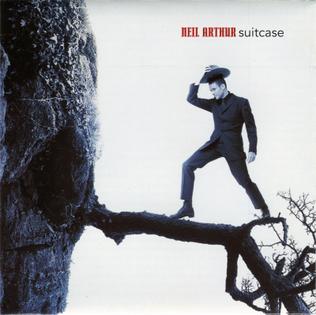
Suitcase (1994) is the debut solo album by Neil Arthur.

A Few Best Men: Original Motion Picture Soundtrack and Remixes is the sixth soundtrack album by British-Australian singer Olivia Newton-John, released on 20 January 2012 by Universal Records in Australia. It was released to promote and accompany the 2011 Australian comedy film, A Few Best Men.

"Lose Your Love" is a song by English synth-pop duo Blancmange, released on 28 October 1985 as the second single from their third studio album, Believe You Me (1985). It was written by Neil Arthur and Stephen Luscombe, and produced by Stewart Levine. "Lose Your Love" reached No. 77 in the UK, which was the duo's first single to fail to reach the Top 40 since 1982's "Feel Me". In the United States, it was a dance hit, reaching No. 2 on the Billboard Dance/Club Play Songs Chart.
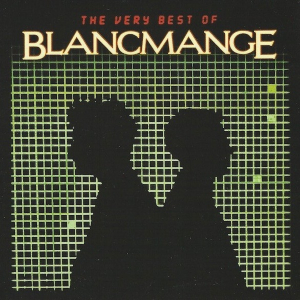
The Very Best of Blancmange is a double CD compilation album by Blancmange, released on 16 July 2012 by Rhino Records. It is composed of singles, album and non-album tracks, and remixes from their first three studio albums. It contains one new track, "Making Aeroplanes ".

"What's Your Problem" is a song by the English synth-pop duo Blancmange, released on 27 August 1985 as the lead single from their third studio album Believe You Me (1985). It was written by Neil Arthur and Stephen Luscombe, and produced by Stewart Levine. "What's Your Problem" reached No. 40 in the UK and No. 30 in Ireland. A music video was filmed to promote the single, which received heavy action play on the European music TV channel Music Box.

"I Can See It" is a song by English synth-pop duo Blancmange, released by London on 14 April 1986 as a non-album single. The song is a re-recorded version of "Why Don't They Leave Things Alone?", which appeared on the duo's third studio album Believe You Me (1985). It was written by Neil Arthur and Stephen Luscombe, and produced by Greg Walsh. "I Can See It" reached number 71 in the UK Singles Chart and remains the duo's last appearance in the chart. Shortly after the single's release, Blancmange decided to disband.

"Feel Me" is a song by the English synth-pop duo Blancmange, released on 23 July 1982 as the second single from their debut studio album Happy Families (1982). It was written by Neil Arthur and Stephen Luscombe, and produced by Mike Howlett. "Feel Me" reached No. 46 in the UK and remained on the charts for five weeks.
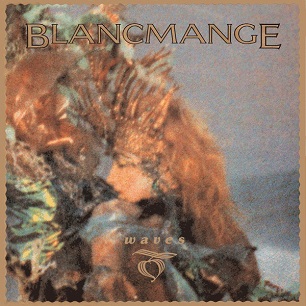
"Waves" is a song by English synth-pop duo Blancmange, released on 21 January 1983 as the fourth and final single from their debut studio album Happy Families (1982). Written by Neil Arthur and Stephen Luscombe, and produced by Mike Howlett, "Waves" reached No. 19 in the UK and remained in the charts for nine weeks.
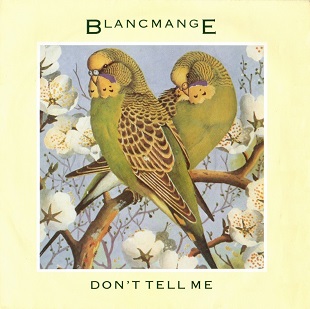
"Don't Tell Me" is a song by English synth-pop duo Blancmange, released in March 1984 as the third single from their second studio album Mange Tout (1984). Written by Neil Arthur and Stephen Luscombe, and produced by Peter Collins, "Don't Tell Me" reached No. 8 in the UK and remained in the charts for ten weeks. A music video was filmed in Valencia to promote the single.

"Blind Vision" is a song by English synth-pop band Blancmange, released in April 1983 as the lead single from their second studio album Mange Tout (1984). Written by Neil Arthur and Stephen Luscombe, and produced by John Luongo, "Blind Vision" reached No. 10 in the UK and remained in the charts for eight weeks. A music video was filmed to promote the single, which received light rotation on MTV.

"That's Love, That It Is" is a song by the English synth-pop duo Blancmange, released on 18 November 1983 as the second single from their second studio album Mange Tout (1984). It was written by Neil Arthur and Stephen Luscombe, and produced by John Luongo. "That's Love, That It Is" reached No. 33 in the UK and remained in the charts for eight weeks. In January 1985, the song, paired with "Game Above My Head", reached No. 16 on the US Billboard Hot Dance/Disco chart.

Semi Detached is the sixth studio album by British Synth-pop band Blancmange, released in 2015. The album was the first to be created without the involvement of original member Stephen Luscombe due to his health problems. Neil Arthur commenced writing material for the album in 2013-14, with recording taking place during 2014. The album reached No. 22 in the UK Independent Albums Chart.

"God's Kitchen" is a song by English synth-pop duo Blancmange, released in March 1982 as a double A-side with "I've Seen the Word". It was the lead single from the duo's debut studio album Happy Families (1982). "God's Kitchen" and "I've Seen the Word" was written by Neil Arthur and Stephen Luscombe, and produced by Mike Howlett. The single reached No. 65 in the UK and remained on the charts for two weeks.
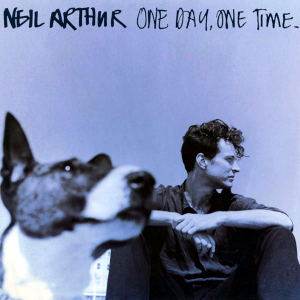
"One Day, One Time" is a song by English singer and musician Neil Arthur, released by Chrysalis as his debut solo single on 5 October 1992 and included on Arthur's debut solo studio album Suitcase in 1994. The song was written by Arthur and Rick Kenton, and produced by Phil Bodger.




















